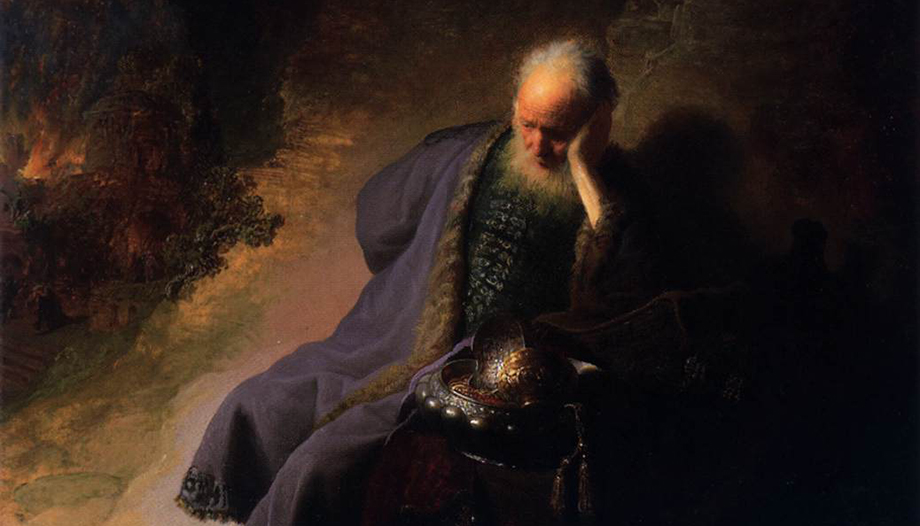Jeremiah is sent by God to try to save his people and Jerusalem, but his message is not heard, and his people will be defeated and deported to Babylon, and Jerusalem destroyed. Jeremiah always obeys the Lord and says what he commands to those he directs; the result is that he is hated and thrown into prison. The story of Jeremiah is a prophecy of the life of Jesus. King Zedekiah, who resembles Pilate, delivers the prophet into the hands of the notables.
Jeremiah, thrown into the mud of the cistern, lives his passion. God approaches him and saves him through a person despised for his condition of foreigner and eunuch, the Ethiopian Ebed-Melech who, having understood the injustice to which the prophet is subjected, is the only one who approaches the king to speak to him on behalf of Jeremiah, who in the besieged city was in danger of being forgotten and starving to death. He risks his life and thus saves Jeremiah's life.
The author of the letter to the Hebrews, after mentioning the innumerable witnesses of faith from Abel to Enoch, Noah, Abraham, Isaac, Jacob, Joseph, Moses, refers to the numerous anonymous witnesses who for the faith were willing to suffer the most terrible trials, tortures and executions.
At the beginning of chapter 12 he applies the teaching to all of us, and exhorts us to persevere in our commitment to the Christian life, using the image of the race and that of looking fixedly at Jesus. The decisive example is precisely that of Jesus, which is proposed to the listeners of this masterpiece of the Christian homily, to exhort them: "Do not grow weary or lose heart." and resist to the point of blood, that is, to the point of possible martyrdom.
Jesus reveals to the disciples his state of mind: the desire to light a fire on earth and the anguish until the baptism he is about to receive is fulfilled. The image of fire in some Old Testament passages signifies the efficacy of the word of the prophets: "Then Elijah the prophet arose like a fire; his word burned like a torch." (Sir 48:1); "I will make my words like fire in your mouth." (Jer 5:14). It also has the sense of purification.
The Baptist had prophesied that Jesus would baptize in the Holy Spirit and in fire. The baptism that Jesus is about to receive is an image of his passion, death and resurrection. The weight of that passage already causes him anguish but, knowing that he will set the earth on fire, he approaches that hour also with great desire. Desire and anguish of Jesus, conflicting and coexisting feelings, which can comfort all those who are called to give their lives in fidelity to the will of God, and who experience the same conflicting feelings.
The homily on the readings of the 20th Sunday of the year
The priest Luis Herrera Campo offers its nanomiliaa small one-minute reflection for these readings.








